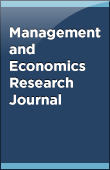


Globally, the health sector is an area that any government must focus on since health is a right of every human being. Kenya particularly initiated the idea of devolution and the Big Four Agenda to ensure service delivery to citizens was achieved. Nevertheless, the situation in the public health sector has been encountering challenges due to dissatisfaction of personnel culminating in strikes. The objective of this study was to explore the effect of the working environment on service delivery in the health sector in Nyeri County, Kenya. The study was guided by the person–environment fit theory. The descriptive cross-sectional research design was used. The target population was derived from public hospitals in Nyeri County. Proportionate stratified random sampling was utilized, where 141 respondents were targeted, comprising doctors, clinical officers, and nurses. Data was collected using a closedended questionnaire. A pilot study was conducted at Mukurwe-ini Hospital to enhance the validity and reliability of the data-collection instrument. A Cronbach alpha coefficient of 0.7 was used to ascertain the reliability of the instrument. Data was analyzed using descriptive and inferential statistics from the 78.7% respondents. The findings established that the working environment had positive and significant effects on service delivery (b1 5 0.476, p-value 5 0.000) at the 5% level of significance, hence rejecting the null hypothesis. The study further established that the public health sector in Kenya should address the drug shortage, medical staff working hours, and machine maintenance as they would adversely affect quality of service delivery. The study recommends that the public health sector should provide health workers a conducive working environment and all necessary tools and equipment to enable them to discharge their duties effectively with a view to enhance service delivery to patients. Future research should focus on the importance of on–the-job training for effective service delivery in the public health sector.
Read Article